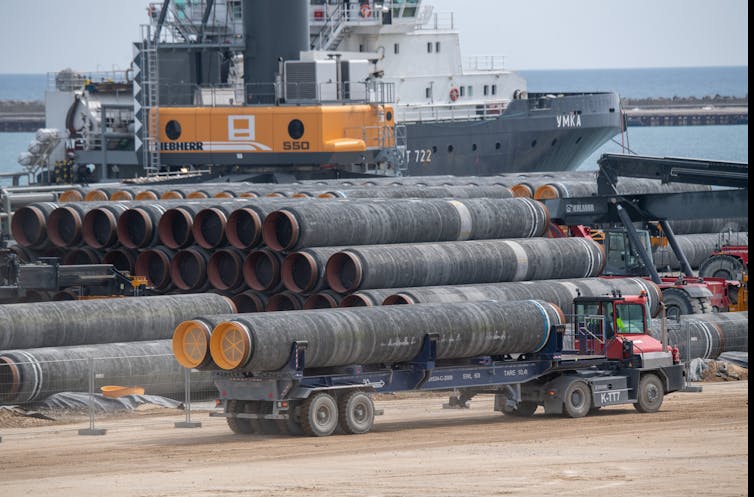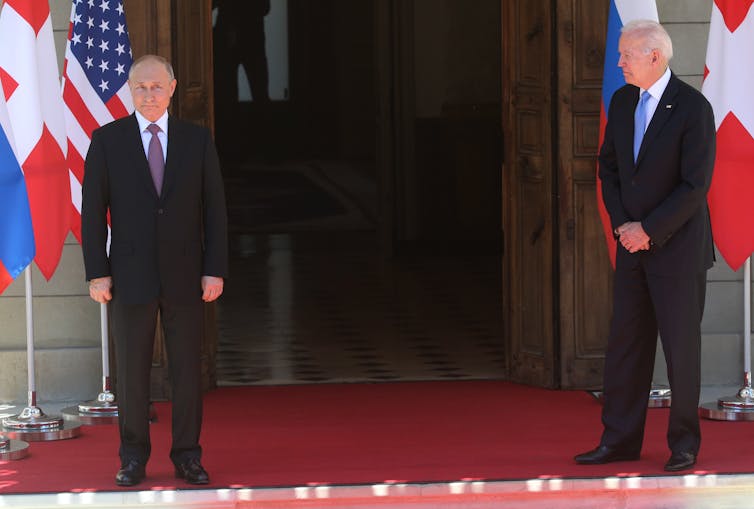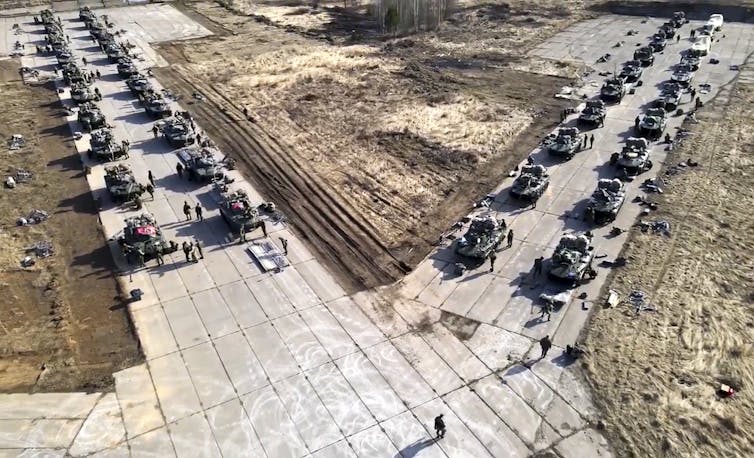Authorities allegedly kill young man in custody on contrived charge of desecrating Quran.
LAHORE, Pakistan, September 17 (CDN) — At a funeral for a Christian man allegedly tortured to death while in custody on a spurious charge of blaspheming the Quran, police in Sialkot, Pakistan yesterday fired on mourners trying to move the coffin to another site.
Area Christians suspect police killed 22-year-old Robert Danish, nicknamed “Fanish” or “Falish” by friends, by torturing him to death on Tuesday (Sept. 15) after the mother of his Muslim girlfriend contrived a charge against him of desecrating Islam’s scripture. The allegation led to calls from mosque loudspeakers to punish Christians, prompting an Islamic mob to attack a church building in Jathikai village on Friday (Sept. 11) and beat several of the 30 families forced to flee their homes.
Jathikai was Danish’s native village, and some family members and other Christians wished to transfer his coffin to his hometown. Eyewitnesses at the funeral in Christian Town, Sialkot, said police fired shots directly at the Christians, injuring three, when mourners began to move the coffin toward nearby Jathikai. Mourners fled.
Sialkot is 125 kilometers (78 miles) northwest of Lahore in Punjab Province.
Controversy swirled around the cause of Danish’s death, with Christians refusing to accept police claims that he committed suicide. Results of forensic tests are expected within a week.
The dark moment for Danish’s family grew gloomier yesterday when police seemed to be seeking the first excuse for heavy-handed tactics at the funeral attended by hundreds of people, Christian sources said. When the family and other Christians tried to take the coffin to his hometown of Jathikai, police fired on them, charged them with batons and snatched the body from them, Christian sources said.
Eyewitness Sajawal Masih told Compass that as soon as mourners lifted the coffin, police began firing tear gas.
“We were running when police opened fire and one bullet went through my foot, and two others also were injured,” he said.
There were reports of Christian youths pelting officers with stones, and police reportedly said that they needed to rush the crowd and make arrests to prevent “further disturbances.”
On Tuesday night (Sept. 15), Danish’s survivors and other Christians had decided that the body would be buried in Christian Town because of the dangers of potential attack in Jathikai, according to Christian Town Councilor Tanveer Saqib. Saqib said that the funeral was to be held at 10 a.m. on Wednesday (Sept. 16) at the Christian Technical Institute (CTI) Ground in Christian Town, Sialkot city.
Pakistan Muslim League-Quaid (PML-Q) Member of National Assembly (MNA) Akram Gill said that when he and several youths took the body from the CTI Ground and began heading toward Jathikai village, police began firing. Gill told Compass that police opened fire on them as well as the crowd, injuring three Christians.
Gill, a Christian, added that police also shot tear gas, and that officers arrested about 100 Christians. The national assembly member said police arrested him and took Danish’s body to the Christian Town Graveyard in Sialkot. In spite of the tear gas, Gill said, he and others went to the graveyard but encountered armed police who also fired tear gas, turning them back.
For three hours, Gill said, Criminal Investigation Department police detained him, and although he was released, police arrested PML-Q Member of Provincial Assembly (MPA) Shehzad Elahi and his whereabouts were still unknown. He said that whenever Pakistan Muslim League-Nawaz (PML-N) members come into power in the province, problems for Christians multiply.
Cause of Death
How Danish died remained unclear. Allama Iqbal Hospital Deputy Medical Superintendent Sajid Hussein told Compass that on Danish’s body there was a large welt on the back of the neck and “marks on the legs and back.” He said it was too soon to determine cause of death but that police had pronounced it a suicide.
Tissues taken from the body have been sent to Lahore for chemical and histopathology tests. He said these tests would indicate how the wounds were made, including whether they were inflicted after death.
“The report of these tests would come within a week, and I would inform the media of its findings,” he said. “I cannot comment on whether he committed suicide or not, as the matter is before the court.”
There were unconfirmed reports that state officials were pressuring doctors at Allama Iqbal Hospital to declare Danish’s death a suicide; Hussein denied these statements, telling Compass that they were “mere rumors.”
Hussein said that two Christian doctors, one from Bethania Hospital and the medical superintendent of Jalalpur Jattan Mission Hospital, were allowed to observe the autopsy. Christian Town Councilor Tanveer Saqib said that after the autopsy, the two Christian doctors came out and told media in front of thousands of Christians that Danish had been tortured to death.
Saqib said Danish’s father received the body and, accompanied by thousands of Christians, took it to Baithania Mission Hospital. The procession was so big that it took nearly four hours, though the route was not far.
Over the weekend Danish’s father had been unduly arrested, and upon his release a station house officer told Danish’s uncle, Saleem Masih, that even though Danish’s father was being released, Danish never would be. Saleem Masih told Compass that Danish’s father went back to his jailed son and told him, “My son, we have been trying our best to save you, but it doesn’t seem we will succeed. I think it is the last time I’m seeing you, so I commit you in the Lord’s hands.”
Councilor Saqib said that a Christian constable posted at the Sialkot District Jail told him that he saw Danish in the jail at around 7 a.m. and that he appeared unharmed. At about 10 a.m., however, jail administrators called important figures in the Christian community and told them that Danish had committed suicide, Saqib said.
Danish’s body was taken to a trauma center for a CT scan, he said, then to Riffat Idrees Hospital for an MRI.
“Along with the body were two Christian doctors – Dr. Tariq Malik and Dr. Qammar Sohail – and we were confident that they would tell the facts,” he said, adding that Malik had all medical reports of these tests.
The Punjab provincial government has ordered an investigation into the death, and three prison officials have reportedly been suspended.
Tragic Love
A paternal cousin of Danish identified only as Parveen confirmed reports that the conflict grew out of a romantic relationship between Danish and Hina Asghar, a young Muslim woman. She said Danish and Asghar were neighbors and had been seeing each other for three or four years.
On the night of Sept. 10, Parveen told Compass, Danish and Asghar met on the roof, angering the young Muslim’s mother. Early the next morning, Asghar’s mother spoke of the affair with the wife of local Muslim cleric identified only as Amanullah; the cleric’s wife in turn warned Asghar that both she and Danish could lose their lives if the relationship continued, Parveen said.
When Danish met Asghar on the road the next morning, Parveen said, the young Muslim woman refused to talk to him but tried to hand him a letter explaining the warning she had received. Upset, Danish batted her hand away as she was trying to give him the letter.
“Because he pushed her hand with a jerk, supara 21 [a section of the Quran larger than a sura, or chapter] fell from her hand and dropped onto a nearby sewage stream and got smeared with garbage,” Parveen said.
Saleem Masih, Danish’s uncle, questions that what fell from Asghar’s hand was a part of the Quran. He told Compass that Asghar was trying to give Danish a green-colored diary that only looked like the similarly green-covered section of the Quran. After the rumor began circulating that Danish had blasphemed the Quran, Saleem Masih said, Danish told his mother that it was not the Quran but a green diary that Asghar was trying to give him which fell.
According to Parveen, Asghar returned home and began cleaning the recovered scripture part, and her mother asked how it became sullied, Parveen said. Asghar’s mother subsequently rushed to cleric Amanullah’s wife, who then told her husband about the incident.
Saleem Masih told Compass that he and his wife, along with Danish’s parents, went to Hina Asghar’s father, Asghar Ali, bowed before him and pleaded for him to stop the false rumors of desecration of the Quran. He responded that Muslim cleric Amanullah would decide on it after the Friday prayers, and that the matter was not in their hands anymore.
On that day, Sept. 11, at about 11 a.m., the Muslim cleric announced during the Friday prayer that a Christian had blasphemed by desecrating the Quran, Parveen said.
Islamic mobs brandishing sticks were already arriving in the village, shouting against Danish and demanding that he be hung to death. They also occupied a house that he owned. Surrounding families fled their homes, leaving domestic animals without food and water.
Relatives Thrashed
Nadeem Masih, a paternal cousin of Danish, said that when he arrived at the village by motorbike that day, a large number of emotionally charged Muslims were setting Calvary Church on fire.
He said several Muslims had surrounded Danish’s father, Riasat Masih, and that he managed to get his uncle onto his motorbike to try to escape. They sped through several mob attempts to stop them and were eventually pursued by two Muslims on motorcycles. As Nadeem and Riasat Masih entered the main road, their motorbike slid and fell as they barely avoided an approaching truck. Nadeem Masih escaped but his uncle, Danish’s father, was captured.
Saleem Masih said that the Muslim mob took hold of Danish’s father, tied him up and were about to set him on fire when elderly men intervened, saying punishment for that crime would be too great, and suggested they instead only beat him. After beating Danish’s father, the Muslim mob untied him and took him into the church, where they burned Bibles, hymn books and other items and continued beating him.
Christian sources said police arrived and arrested Riasat Masih – not his attackers – and took him to the police station. Riasat Masih filed a crime report against the jailor and police officials at the Civil Lines Police Station, according to Christian Town Councilor Saqib.
Saleem Masih told Compass that he also was beaten. He said he was with Calvary Church Senior Pastor Dilshad Masih when they arrived in the village to find the mob setting church articles on fire and striking it with whatever they could find on hand. Realizing he could do nothing, Saleem Masih said he ran to his farmhouse, also owned by a Muslim named Bao Munir.
Munir took hold of him, he said.
“He brought out my cot and other belongings and set them on fire, and then he also tried to burn me in this fire,” Saleem Masih said.
Munir told him he could either be burned or go with him back to the village, and he forced all of the Christian’s clothes off of him except a cloth covering his loins and burned them, Saleem Masih said. After some struggle, he said, he managed to escape.
Danish, meantime, was hiding in a house in Jathikai village but was arrested the next morning (Sept. 12) when he went out for drinking water.
Tensions escalated, a source told Compass, when cleric Sabir Ali announced from his mosque in nearby Bhopalwala village that a Christian boy had blasphemed Islam by throwing the Quran in a drain.
Church Fire
After Calvary Church was set on fire, about 30 nearby families fled from the brutal beatings. Eyewitnesses told Compass that the assailants first went to Danish’s house. Not finding anyone there, they attacked the locked church which was only three houses from his.
The eyewitnesses, who were still in hiding and fearing further attacks, said that the assailants burned Bibles and hymnbooks. The assailants brought the church cross out, they said, and beat it with their shoes. The sources said the attackers were mainly from Shabab-e-Milli, a wing of the Muslim extremist Jamaat-e-Islami.
Christian Town Councilor Saqib said that the mob got hold of Calvary Church Senior Pastor Masih and severely beat him while police stood by. Police kept Saqib and his team from going to the blazing Calvary Church building, signaling them from afar not to come near, he said. He added that they had to turn back as the rampaging Muslims turned on them to attack, which police made no effort to stop.
Pastor Masih told Compass that when he and Saleem Masih arrived at the church building, Muslims shouted at them, “Catch these Christians!” He remained standing as others fled, he said, and the mob beat him and took his mobile phone.
“They wanted to kill me, but miraculously I managed to run from there,” he said.
Saqib said MPA Kamran Michael of the Pakistan Muslim League-Nawaz (PLM-N), the ruling party in Punjab province, reached the village on Friday, but police did not allow him to go to the burning church, citing security threats. About 500 Christians later gathered in Sialkot to protest the church fire, with Michael addressing the crowd.
Michael said that one of the protestors reminded him that after Islamic mobs burned homes in Gojra last month, he had vowed to resign if further attacks took place. The crowd then began demanding that he resign, and police opened fire and charged the crowd with batons. He added that throughout the incident there were several media vans, but none of the major television stations covered the protest.
Several Non-Governmental Organizations (NGOs) and Christian media also faced difficulties in getting in the village, though in all previous incidents media and NGOs were allowed access. In this case, however, police told them that they were not allowed due to security reasons. Also unable to gain access to Jathikai was Pakistan People’s Party provincial Assembly Member Amna Buttar and minority rights groups.
George and Butta Masih, along with four family members, were in Jathikai tending to their five cows on Sunday (Sept. 13). George Masih told a Compass reporter who had somehow got into the village that they stayed home all day and went out only at night to bring some fodder for the animals. They said that Muslims would beat any Christians seen during the day.
On Sunday about 500 to 700 Muslim women staged a protest in Sialkot to refute the notion that a Muslim woman could fall in love with a Christian man.
Several Christian and secular organizations in Lahore have scheduled a candle-light vigil today (Sept. 17) as a memorial for Danish and other members of Pakistan’s minority communities who have been killed or attacked in Islamist attacks.
A field officer for advocacy group Community Development Initiative, Napoleon Qayyum, said such attacks were weakening the Christian community.
“After the Gojra incident, several Christians said that their Muslim employers had told them not to come to work anymore,” Qayyum said. “This economic dependence further plays part in seeking justice.”
He added that in the June 30 Islamist attack on Bahmaniwala, in Kasur district, Christians did not want to pursue justice as they worked on Muslims’ land and could not afford confrontation.
“Their fear is that they would be left without jobs,” he said. “Due to economic dependence and poor status, Christians neither pursue their cases, nor do they defend themselves in such instances.”
Report from Compass Direct News



![]()

You must be logged in to post a comment.